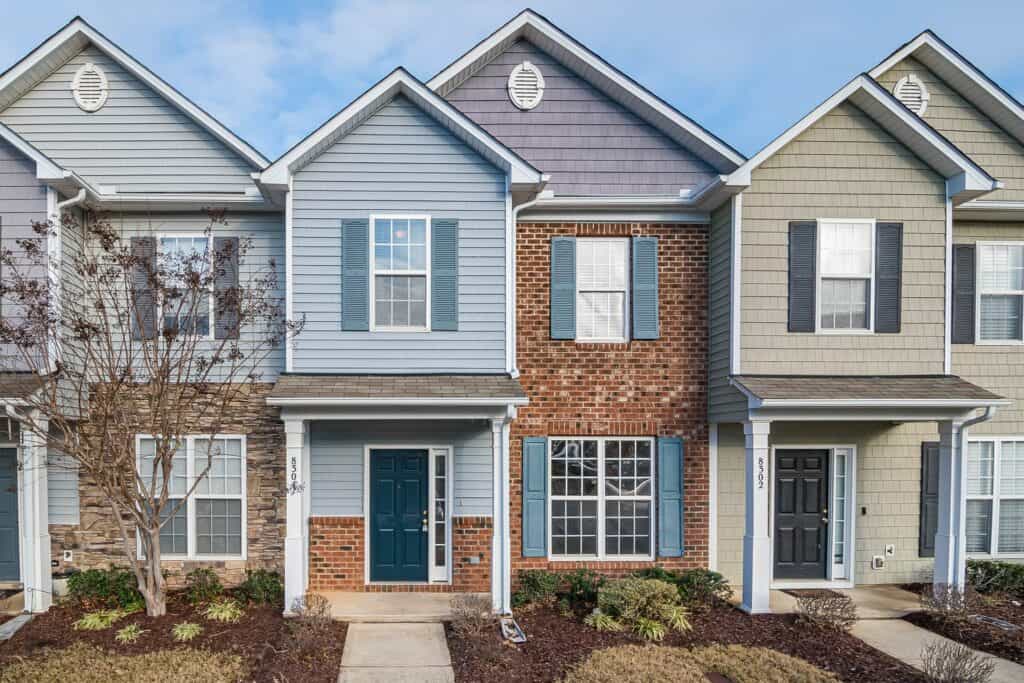Contents
Some people live their whole life without experiencing membership in a homeowners association, or HOA. For others, life in an HOA is simply the norm. Either way, you may have some questions about what an HOA actually is, legally and practically speaking. You may also wonder what benefits an HOA provides to its members; and, conversely, what responsibilities members owe to their organization.
In this article, we’ll take a closer look at the function and purpose of the HOA, and provide some general insight and tips for those who are considering HOA life.
What is an HOA?
It’s always good to begin with a basic definition of terms. An HOA is simply an organization that exists within a subdivision, condo complex, or planned community. The HOA is a legal entity, and when you purchase a home within the community, you are automatically enrolled as a member. This may require you to pay dues and assessments, and to abide by the HOA’s rules and regulations. More on all of that in a moment.
Note: Some neighborhoods may establish their own non-binding organizations, for the purpose of building community or for beautifying the neighborhood. These non-mandatory organizations may be called HOAs, but they do not have any authority to collect dues, impose rules, etc. As such, that’s really not what we’re talking about today.
What is the Role of the HOA?
It’s natural to wonder why anyone would choose to live in an organization where they owe dues (on top of their regular mortgage payments, property taxes, etc.) and are bound to comply with certain rules and statutes.
While there are definitely some trade-offs involved, a good HOA will deliver significant value to its members. The overarching goal of the HOA is to preserve home values. The Association might enforce certain rules to keep lawns looking well-maintained, and to prevent homeowners from making unattractive additions, in order to ensure that everyone’s property values remain consistent, or rise.
Additionally, the role of the HOA is to build a sense of community, ensuring that the neighborhood is a place where people actually want to live, and ultimately where they enjoy living. As such, an HOA may maintain common areas, such as pools, parks, clubhouses, sidewalks, bike trails, or tennis courts. And, the HOA may also plan and conduct community-wide events, such as block parties.
So, while the notion of living in an HOA may initially seem onerous, the goal is for it to be just the opposite. HOAs exist to improve the quality of life for members, and to safeguard each member’s financial investment.
What Does the HOA Actually Do?

In pursuit of these big-picture goals, there are a number of tasks that the HOA must carry out. The specifics may vary from one HOA to the next, but they will always be outlined in the organization’s governing documents, which serve as a kind of legal charter. More on those documents shortly. Additionally, the duties of the HOA are ultimately the responsibility of the Board of Directors, though they may be outsourced to a professional manager or even to homeowners who volunteer.
A few of the most common HOA duties include:
Managing the Association’s Funds
First and foremost, the HOA has a fiduciary duty to homeowners. The Association must ensure that it is financially solid, something that includes collecting dues, budgeting, and maintaining financial records.
The HOA may also be tasked with maintaining a reserve fund. Essentially, the reserve fund is money that’s set aside to cover major maintenance to common areas, or emergency repair needs that arise. (Examples of common areas may include the sidewalks, the roof of the clubhouse, shared landscaping, etc.) From time to time, a reserve study may be performed to make sure that the Association has enough funds in its reserve.
Enforcing the Rules of the Association
The members of the HOA Board are also tasked with ensuring that the rules of the organization are upheld and enforced consistently, and without any favoritism.
Most basically, homeowners are expected to pay their dues on a regular basis. For homeowners who do not pay their dues, the HOA may levy penalties, or in some cases take legal action, such as placing a lien on the property in question.
Additionally, the HOA may place rules that govern things like lawn care, exterior paint colors, additions, and expansions, where vehicles can and cannot be parked, etc. These rules should always be fairly common-sense, and they should exist simply to help maintain residential values. If homeowners do not comply with these rules, however, the HOA may need to take disciplinary action.
Finally, the HOA may require that homeowners who wish to make additions or modifications to the exterior of their home submit their plans to an architectural review committee. Again, the point is simply to make sure that homes in the neighborhood maintain uniformity, and that homeowners are able to maintain their property values.
Procuring and Supervising Vendors
Different vendors may be recruited to help fulfill the day-to-day needs of the HOA. Some of the most common examples include lawn care companies, who help keep common areas looking nice and neat, as well as bookkeepers to assist with the financial upkeep. Contractors, plumbers, or electricians may be required for more short-term projects.
Members of the HOA Board may be tasked with finding the right vendors, creating contracts, negotiating the best rates, and overseeing the work of the vendors. It’s wise for HOAs to review vendor contracts on a regular, even annual basis, ensuring they are getting the best work for the best financial terms.
Fostering Community
Another important role of the HOA is to cultivate a sense of community among members. This may look like block parties and special events, or it may simply mean sending out regular newsletters and other communications, keeping all members in the loop.
The community-building function of the HOA may also entail conflict resolution any time there is disharmony between neighbors.
Ensuring Legal Representation
Finally, if the Association becomes embroiled in any kind of legal issue, the Board will need to ensure that the organization’s position is well-represented in court. Generally speaking, this will just mean hiring an HOA attorney. Indeed, residential communities should have an experienced HOA attorney on retainer for any issues that might arise.
This is only a partial list of the HOA’s role and responsibilities, but hopefully, it provides a clear summary of the value HOAs offer to their members.
Who’s in Charge of the HOA?
A common question about life in an HOA: Who exactly is in charge?
While an HOA is usually established by the initial real estate developer, each HOA community is ultimately governed by its own membership. Specifically, homeowners may elect a Board, in an elections process that is outlined in the Association’s governing documents. The Board’s powers, responsibilities, and limitations are all carefully outlined in those documents.
The specific roles within the HOA Board can vary from community to community, but generally there will be a President, who is sort of like the CEO for the community, along with a Vice President, Treasurer, and Secretary. There may be members of the Board who do not have a particular role or title, but still plan a crucial role in making decisions and enforcing the policies of the Association.
What are the Governing Documents of the HOA?
Every Association has a set of governing documents, which function as a kind of constitution for the entire HOA. All members, including those who serve on the Board, are bound by these governing documents.
Most commonly, the governing documents of the HOA include a declaration of covenants, conditions, and restrictions, also known as CC&Rs. Again, the goal of the CC&Rs isn’t to impose restrictive rules, or to dictate use of common property, simply for the sake of being onerous. The role of the CC&Rs is to make sure there are clear expectations for how all members are supposed to behave. Additionally, the CC&Rs will clearly outline the roles and functions of Board members, plus the process for holding elections within the HOA.
The CC&Rs may also suggest ways in which the community can democratically enact new rules, or modify existing ones. Rules in the HOA governing documents cannot be amended outside of this process.
What are the Responsibilities of HOA Members?

As we have noted, community associations provide much benefit to members. With that said, there are also some expectations and responsibilities for members to be aware of. Life in an HOA will generally include all of the following:
Paying Dues
HOA members are usually expected to pay dues, or assessments, on a monthly or annual basis. The money collected goes toward upkeep of common properties, such as cleaning and maintaining the community pool, snow removal in common areas, upkeep of parking lots and sidewalks, etc.
Paying Special Assessments
Additionally, members of the HOA may at some point need to pay a special assessment. This is a one-time cost that usually comes about due to unexpected expenses, and a lack of proper reserve funding. Note: Homeowner associations that are diligent in their reserve studies will usually have sufficient funds on hand for any and all community expenses.
Keeping Up with Exterior Maintenance
In an effort to maintain consistent property values, HOAs expect homeowners to keep the exterior of their homes looking nice and relatively uniform. This typically means staying up-to-date with lawn mowing and general maintenance, avoiding certain exterior paint colors, not neglecting major repairs (especially exterior repairs), etc.
Following All HOA Rules
Beyond paying monthly assessments and complying with home maintenance stipulations, HOA and condo development members are expected to follow some basic rules set forth in the CC&Rs. These are usually very straightforward, common-sense rules, and may include keeping dogs on a leash when outside, parking only in approved areas, avoiding noise violations after certain hours, and more.
What About Professional Management Services?
The role of governing an HOA can be pretty overwhelming. Even with a monthly Board meeting and plenty of able volunteers, the HOA Board may still need a little help keeping the community running. That’s why so many HOAs enlist the expertise of professional community management services.
Management companies exist to serve the needs of community residents, as well as the community as a whole. First and foremost, their job is to make life easier for Board members. In doing so, however, they also ensure that the basic goals of the community are upheld, particularly higher property values and an overall higher quality of life. As such, each individual homeowner should benefit when their housing community or condominium community enlists the services of a property manager.
So what exactly does the management company do?
Duties of the HOA Management Team
The short answer: It depends on the HOA, and on the guidance provided by the Board of Directors. A few of the most common duties performed by an HOA management team include:
- Assisting with bookkeeping and financial management, including collection of financial statements
- Guidance navigating legal issues, including hiring an HOA lawyer when needed
- Vendor procurement and supervision
- Assistance planning and running efficient HOA meetings
- Technological solutions, including online portals where homeowners can pay their assessments
- Guidance studying the reserve fund
- Help with robust community communications, including newsletters, social media management, and more
- General insight and support for running an effective organization
Not every HOA winds up hiring a professional management team, but doing so can certainly be an advisable way to ensure that the overarching goals of the association are upheld.
Frequently Asked Questions About HOAs

Still have some questions about how HOAs work? Here are a few FAQs.
Is HOA membership mandatory?
For true HOAs, set up with governing documents and Boards of Directors, membership is typically mandatory for any homeowner who buys a property in the neighborhood or community. However, there are some community associations that call themselves HOAs, but do not actually have any legal authority to collect assessments or enforce rules.
Can you refuse to join an HOA?
See above; a true HOA is a legal entity that has the authority to collect assessments and impose rules on all members, and if you own a home in the community, there is typically not an option to opt-out.
Can you ignore your HOA?
You would wind up with fines, liens, or even lawsuits if you simply flaunt the rules of your Association, or if you don’t consistently pay your association fees.
Why do some people think Associations are bad? Are HOAs actually good?
HOA life probably isn’t for everyone; there’s a trade-off between rules, regulations, and association fees on the one hand, with increased property values and common assets on the other. We would definitely recommend learning more about the ins and outs of HOA life before you buy into an HOA community. With all of that said, many people really love living in an HOA, and benefit greatly from the shared governance of their community.
Learn More About Life in an HOA
Whether you are just in the house-hunting phase or you already live inside an HOA, it’s always a smart idea to review the basic tenets of HOA life.
If you have any questions about the value of living in an HOA, about the requirements of Board service, or about the benefits of hiring a professional management team, we welcome you to contact Kuester Management Group, a top community management team serving Charlotte, Myrtle Beach, and throughout the Carolinas.

